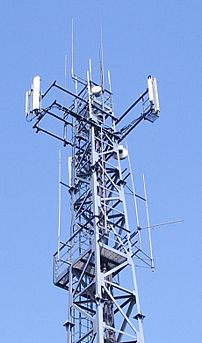Interesting reading the following few links are.
Still, I’d prefer to be able to read in silence on a long flight than deal with my neighbours’ cheesy ring tones…
http://money.cnn.com/2004/12/09/technology/personaltech/cellphones_inflight/?cnn=yes
“The FCC rules have less to do with the effects on a plane’s navigation than concerns that cell phones on planes could wreak havoc with cell phone systems on the ground.”
http://www.wired.com/news/culture/0,1284,41177,00.html
‘…What’s more, many of the reasons are unclear, especially since many airlines have FAA-approved, seat-installed cell phones of their own. It costs about $3 a minute to make an in-flight call in the United States; a 20-minute call costing $60 doesn’t exactly make company accountants jump for joy…
…”I question (the prohibition of cell phones in flight) because they have a telephone if you pay for it,” said Larry Murphy, vice president of sales and marketing for Flying Food Group…’
‘…Airlines generally abide by the FAA’s recommendation, but what they don’t tell passengers is that no agency — not even the RTCA — has come up with definitive evidence of portable electronic devices interfering with a plane’s instruments…’
http://en.wikipedia.org/wiki/Cellular_phone
Using mobile phones on aircraft
…The use of mobile phones is generally forbidden on aircraft during flight. One reason given for this is that the mobile phone could interfere with the sensitive equipment on the aircraft. This could be restated as “during development these aircraft were not designed to accept signals from mobile phones and there has not been sufficient testing to be sure that they could” as can be seen from plans to improve certification [1] (http://www.caa.co.uk/docs/389/srg_sys_00002-01-300103.pdf). Some level of electromagnetic interference is theoretically possible from active radio transmitters such as mobile phones on aircraft. Exactly how much and in what way is dependent on the particular phone system in use and the plane component in question. Whether that level of interference should have any influence on electronic systems which should be designed to fly through lightning storms without falling out of the sky is an entirely different question…
…One area in which interference would be most likely is in the radio-based audio equipment used for voice communications between the aeroplane and the ground. The mobile phone transmitter is much closer to the receiver on the aircraft than the ground station, but operates at a lower power than the ground station…
…Another factor is that from an altitude, distant cells are visible to the mobile with no line-of-sight attenuation from intervening obstacles. This means that the phone could try to establish contact with a far away cell where the signal will not be recognised. This transmission will probably be at maximum power due to the lack of prior response. The U.S. Federal Communications Commission prohibits the use of mobile phones in the air for this reason. This repeated sending of maximum power messages increases the risk of interference with electronic equipment on the aircraft…
…All of the above having been said, according to the BBC “most of the evidence is circumstantial and anecdotal. There is no absolute proof mobile phones are hazardous.” [2] (http://news.bbc.co.uk/2/hi/uk_news/399154.stm) Some airlines do allow use of mobiles phones in flight, only restricting their use (and use of all other electronic devices) during take off and landing when communications with the ground are most critical…
…Some articles have even gone so far as to accuse the airline industry of pushing the ban on mobile phones in order to increase revenue from on board telephones [3] (http://news.zdnet.co.uk/business/0,39020645,2074198,00.htm). A number of new phones have an “aeroplane mode” feature that presumably stops all incoming and outgoing communications while still allowing the user to play games, type notes etc…

![Reblog this post [with Zemanta]](https://i0.wp.com/img.zemanta.com/reblog_e.png?w=580)


 Tags:
Tags: